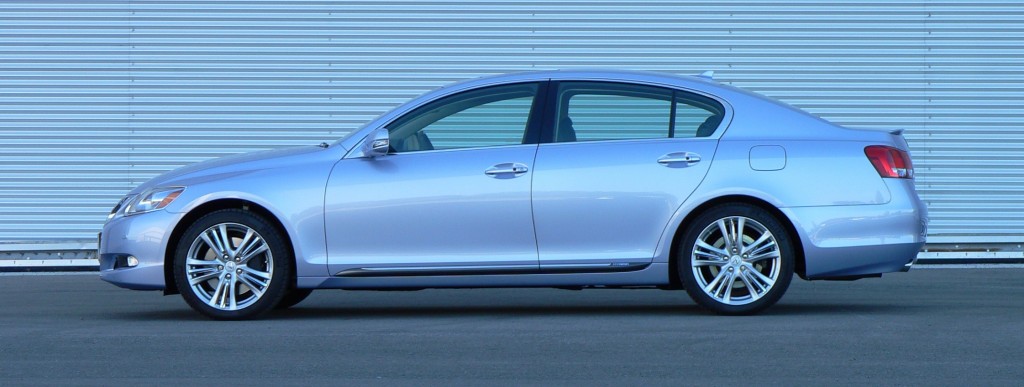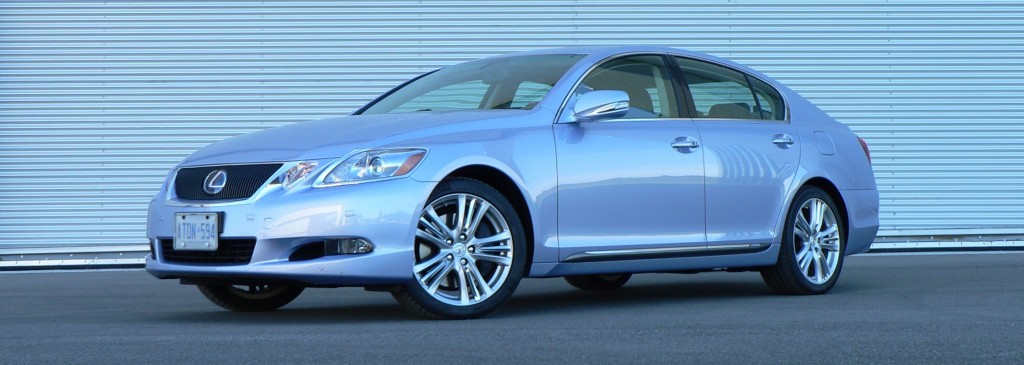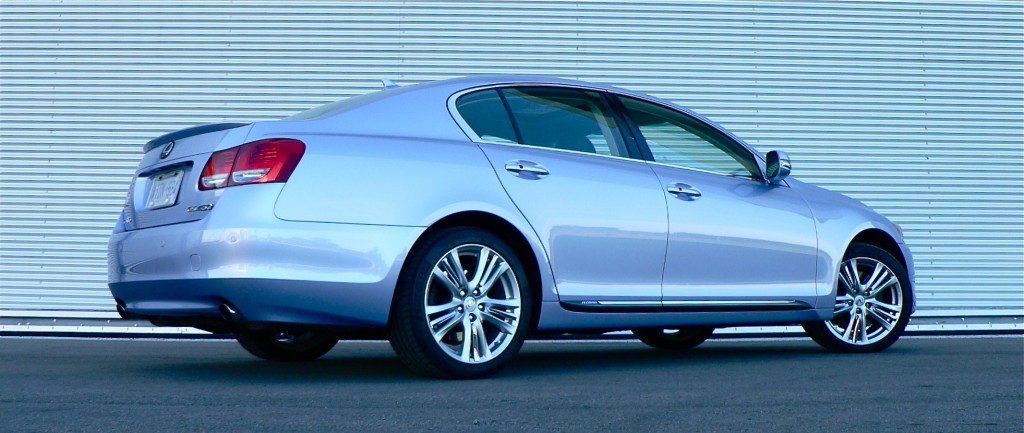Road Test: 2008 Lexus GS 450h
Story and photos by John LeBlanc
Looking for a car that makes you feel like you’re saving the planet, but that also rewards your hard-earned successes in life?
The Lexus GS 450h is a mid-size, five-passenger luxury sports sedan that is also a H-Y-B-R-I-D. As such, the automaker says it’s a synthesis of both the green and the mean.
Now in its second year of production, the $69,200 GS 450h is the first mass-produced rear-wheel-drive luxury hybrid sedan. Under its hood is a naturally aspirated 3.5-litre V6 engine matched to an electric motor and a continuously variable transmission.
According to Lexus, the GS 450h delivers the performance of the gas-only V8 model (both get to 100 km/h from rest in around 5.5 seconds), but with better fuel economy and fewer emissions than the V6.
According to Transport Canada’s rating, Lexus’s performance hybrid has Toyota’s boast of “green” covered. The GS 450h emits around 80 per cent of the CO2 in one year that its non-hybrid V8 sibling does ? and it does it for $1,900 less.
Want to feel even more environmentally superior? The hybrid GS’s 8.7 L/100 km in the city, and 7.8 L on the highway means that it also emits only 3,984 kg/year, compared with 4,464 kg/year for its gas-only V6 sibling in the GS350 (though the base model of that costs $16,300 less).
All of which pales next to the smaller, less powerful Prius, which emits less than half the CO2 of the GS hybrid.
Yet for those used to such luxuries as a leather-swathed cabin, power everything, heated and cooled seats and enough room in the back seat for you to be able to wear your winter furs (synthetic, naturally) in comfort, the GS 450h puts the decidedly more plebian Prius in its rightful place.
So the GS 450h leaves little doubt about its responsible qualities. And Lexus’s accepted high levels of luxury and build refinement are safely intact, even in hybrid form.
But how does the GS 450h deliver on the performance front?
From the driver’s seat, the back-and-forth between gas and battery assist is totally transparent. All you hear is a turbine-like swoosh as the electric motor comes online when demand exceeds the 253 hp maximum of the V6.
Sustained foot-to-the-floor acceleration or passing manoeuvres will draw down the battery, reducing the combined 339-hp output of both the gas and electric motors.
In a straight line, when both forms of hybrid power are being called upon, the GS 450h is one fast hybrid.
In fact, Toyota says it’s the fastest four-wheeled carbon offset on the planet.
In June of this year, a GS 450h became the Guinness World Record holder for “fastest hybrid gasoline-electric car over a quarter of a mile from a standing start,” reaching 162 km/h in 14.195 seconds.
Green, meet mean.
To campaign its green and mean ethos, Toyota Canada has even entered a GS 450h in the gruelling week-long Targa Newfoundland rally for the second year in a row this month. That said, I’m not sure I’d want to be in the GS on such hotly contested backroads.
Curvy roads expose the relatively weak handling limits of the GS 450h, despite all of its bits and pieces of technology and luxury.
Heavier than the gas model, the hybrid moves too much on its chassis to sustain any momentum.
It also doesn’t help that there’s little or no input from the steering wheel as to what the car is doing at pavement level. The regenerative braking system is nonlinear and the constantly spooling CVT sounds unnatural (as they all do.)
With less than 70 sold in Canada this year, the GS 450h is hard to beat as an exclusive hybrid highway cruiser that delivers a roomy, quiet ride with best-in-class fuel economy.
For politically correct car buyers looking for a responsible performance status symbol, however, Lexus’ relentless pursuit of perfection needs to continue a bit longer.








![[del.icio.us]](https://www.straight-six.com/wp-content/plugins/bookmarkify/delicious.png)
![[Digg]](https://www.straight-six.com/wp-content/plugins/bookmarkify/digg.png)
![[Facebook]](https://www.straight-six.com/wp-content/plugins/bookmarkify/facebook.png)
![[Google]](https://www.straight-six.com/wp-content/plugins/bookmarkify/google.png)
![[Reddit]](https://www.straight-six.com/wp-content/plugins/bookmarkify/reddit.png)
![[StumbleUpon]](https://www.straight-six.com/wp-content/plugins/bookmarkify/stumbleupon.png)
![[Twitter]](https://www.straight-six.com/wp-content/plugins/bookmarkify/twitter.png)
![[Email]](https://www.straight-six.com/wp-content/plugins/bookmarkify/email.png)